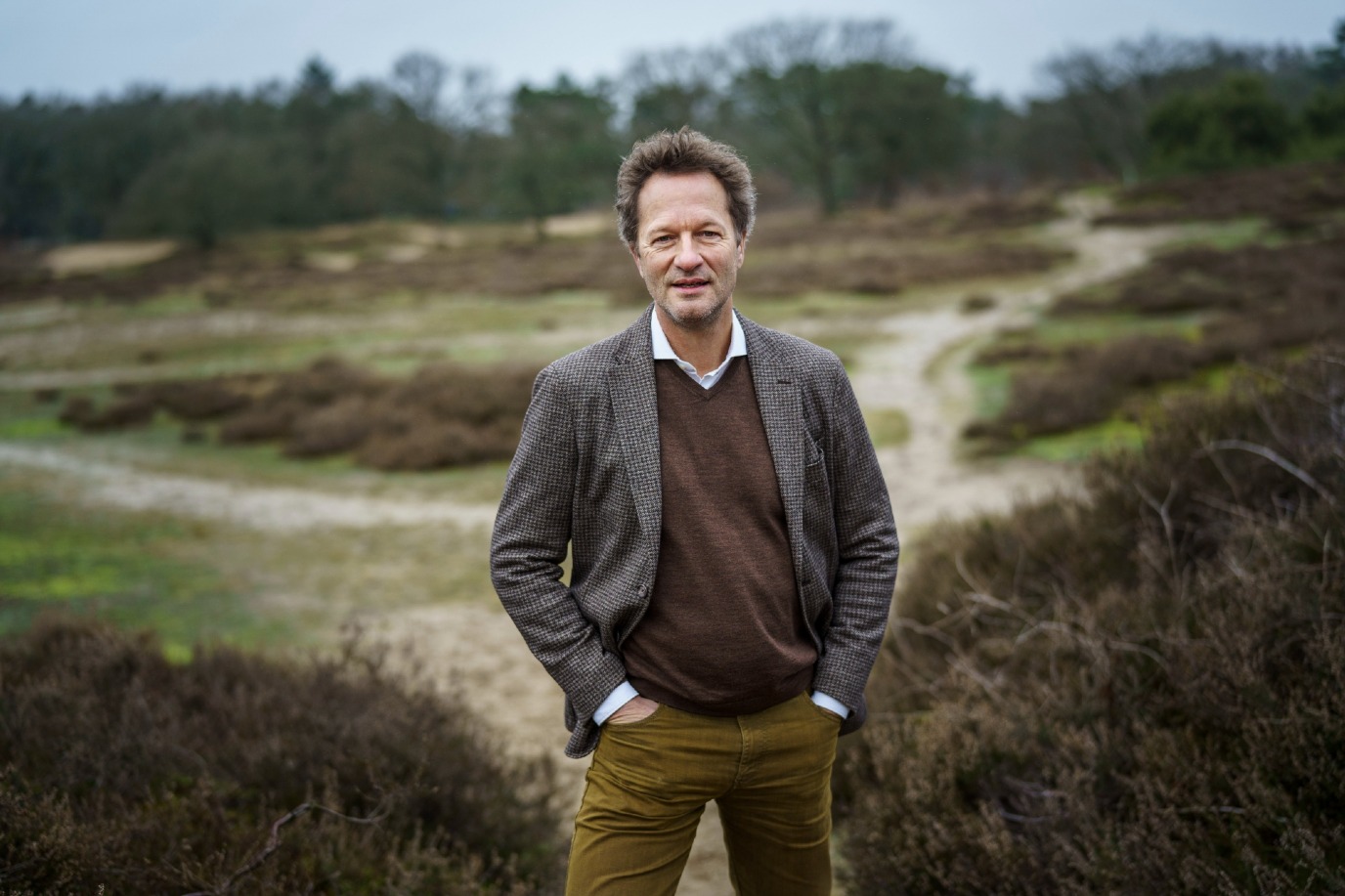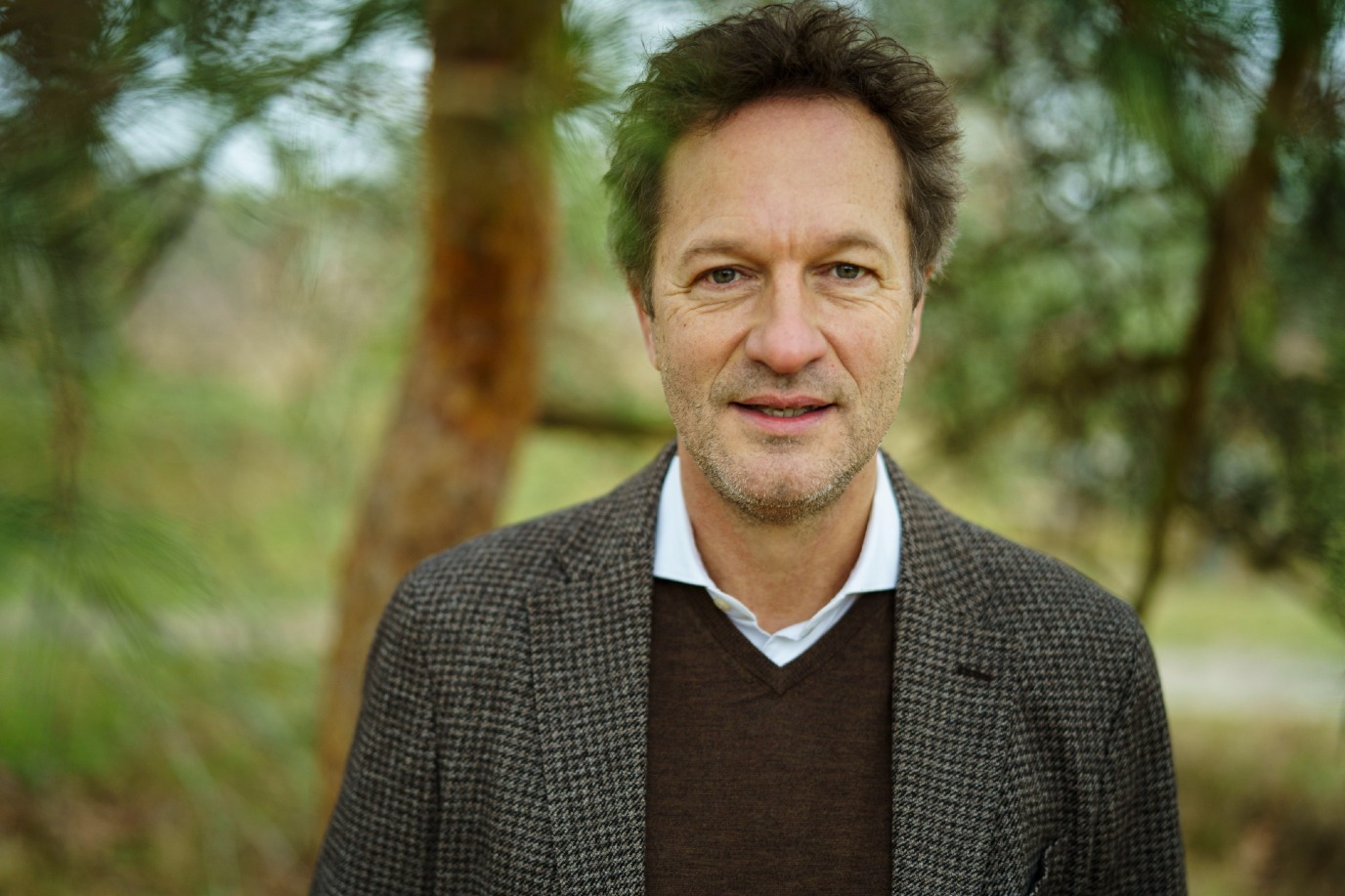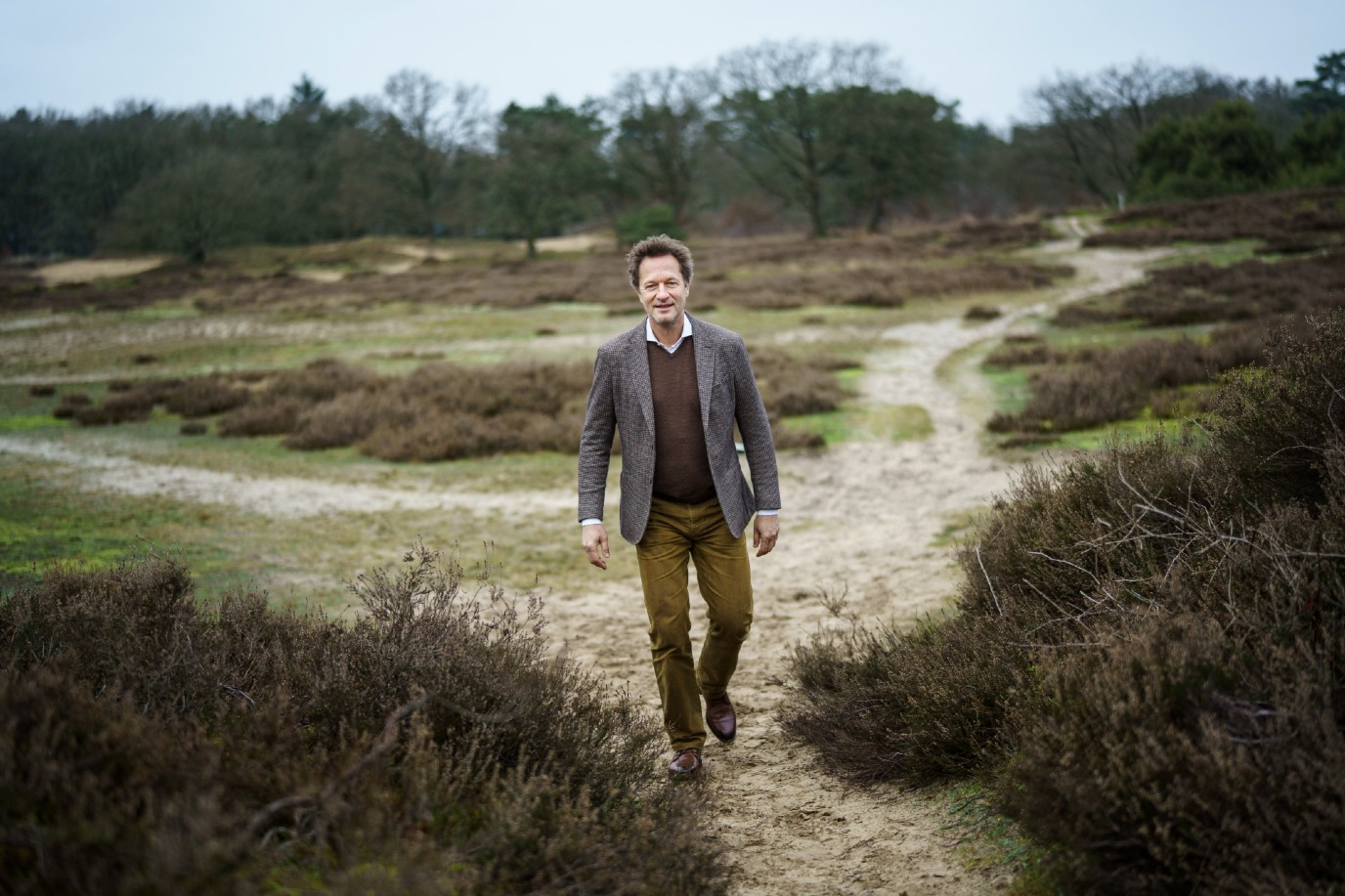Spirituality for better (mental) health
Almost daily, you can read about problems in mental healthcare. Costs are skyrocketing and there are long waiting lists due to capacity shortages, not to mention the ageing population and overworked staff. In other words, the system needs to change. Brand-new professor and psychiatrist Rogier Hoenders emphasizes the important role of spirituality and a healthy lifestyle in this context.
Text: Merel Weijer, Corporate Communicatie RUG / Photos: Reyer Boxem
The best of both worlds
In Groningen, they have taken a bold approach to tackling healthcare problems. The Faculty of Religion, Culture and Society and Lentis GGZ joined forces and established a unique chair: Spirituality, Lifestyle, and Mental health. Hoenders is keen to explain what makes the new chair so unique. ‘It is a multidisciplinary collaboration encompassing spiritual care, religious studies, sociology, psychology, and medicine.’ A role that seems right up Hoenders’ street. For 25 years, he has worked in the mental healthcare sector as a psychiatrist, and an important part of his work already involved doing research, expanding knowledge, and transferring it. With this new position, he literally has one foot in academia and one in clinical practice— a combination that he enjoys a lot. ‘No matter how rewarding the work in the mental healthcare sector is, there is also a lot of suffering, and procedures sometimes take time. The University feels like a breath of fresh air to me. Being able to work in practice with people who are ill, while having the opportunity to interact with forward-thinking and inquisitive students at the University, offers a dynamic variety. It is the best of both worlds.’

Bonkers or blind faith
Hoenders focuses on three topics: complementary care, lifestyle, and mindfulness. He is very familiar with these, as throughout his career he has advocated forms of informal care, which include lifestyle interventions, meditation, yoga, running against depression, healthy eating, breathing exercises, etc. Hoenders has also been engaged in complementary care, such as natural remedies, for some time. Almost half of the Dutch population uses remedies such as St John’s wort, lavender, valerian, melatonin, omega-3 fatty acids, cannabis oil, and so on. Hoenders is keen to explore how we can use these in a sensible way, for example, by helping people make better decisions. But he also investigates whether we can put them to the test and whether they could be integrated into mainstream care, emphasizing that this should be done in a critical, scientific, as well as an open-minded way. ‘Among those who have an opinion about it, many are either dogmatically opposed and think right from the start that it is bonkers, or they possess a blind, naive belief that anything natural is good. Both are untrue and it is important to establish a science-based balance in this.’
Spirituality as a driving force for change
As far as lifestyle is concerned, Hoenders and his group have developed their own methodology — a combined lifestyle intervention, specifically for people with mental illnesses. It is about eating more healthily, exercising more, relaxing more often, sleeping more, social relationships, less use of stimulants and junk food. According to him, spirituality can also be seen as a lifestyle factor. ‘People who eat healthily live longer and are sick less often, but people who have a clearly defined sense of purpose and are actively committed to it, for example in a community or individually using meditation or yoga, also live longer and are less likely to have mental and physical illnesses. Also, when they get sick, they make a quicker recovery.’
On the flip side, Hoenders notes, spirituality could also function as a driving force for change, for example, when dealing with trauma or in making lifestyle changes. ‘It takes courage and energy to face your old pain, even when it goes against your instincts. The effort you have to put in for this kind of thing can be better spent if the goals are in line with what is most important in your life, i.e., your sense of purpose.’

Slow question
The question about the meaning of life is a slow question, according to Hoenders. It prompts people to reflect, and that plays an important role when it comes to direction, meaning, and purpose in life, and it can be either religious or humanistic, atheistic, or agnostic. According to Hoenders, connection is key in this regard. ‘You can feel connected to the present moment, get in touch with yourself, but it’s also about feeling connected to others or to nature. Finally, there can be a connection with the transcendental level. Something that goes beyond the self-perspective; contributing to a greater whole, beyond your self-interest.’ Adamantly, he states: ‘It must be made clear, however, that spirituality is not exclusively meant to be therapy, just as religion is not.’ It can, nevertheless, have a positive effect on wellbeing, health, and life expectancy, and that is how he believes it should be used.
A public Dutch Association of Mental Health (GGZ)
Hoenders goes on to explain enthusiastically what he is currently working on. ‘In Groningen, we are now looking at how we can organize healthcare differently, with psychiatrist Jim van Os serving as a source of inspiration. He has developed a model: Mental Health Ecosystem [Ecosysteem Mentale Gezondheid] This model makes more use of informal care and it brings together the medical and social domains,’ which means that neighbourhood or church communities, fitness schools, or day care centres are also involved. But it also means encouraging people to take control of their own lifestyles. It is a redesign of healthcare that makes people less likely to end up in scarce, specialized, and expensive one-on-one care. Van Os refers to this as a public GGZ. Hoenders: ‘I think it is a very good idea to also provide people with the tools to work on their own health.’

Killing two birds with one stone
Back to the new chair, which, according to Hoenders, is a good example of how the University can step out of its ivory tower by partnering with a large societal organization. ‘Concepts can be developed and researched within the faculty and implemented in healthcare. Similarly, there are healthcare issues that can provide inspiration for research. Lentis offers a lot of opportunities for student placements. That is the place where they can gain practical experience. In addition, Lentis would like to keep its interventions up to date and continue to innovate. That’s where the faculty’s knowledge and capacity can be put to very good use. In that respect I would say we’re killing two birds with one stone. There are so many interconnections and potential benefits’. Needless to say, Hoenders is certainly fit for spirituality in his new role.
More information
More news
-
06 January 2026
Connecting with history
